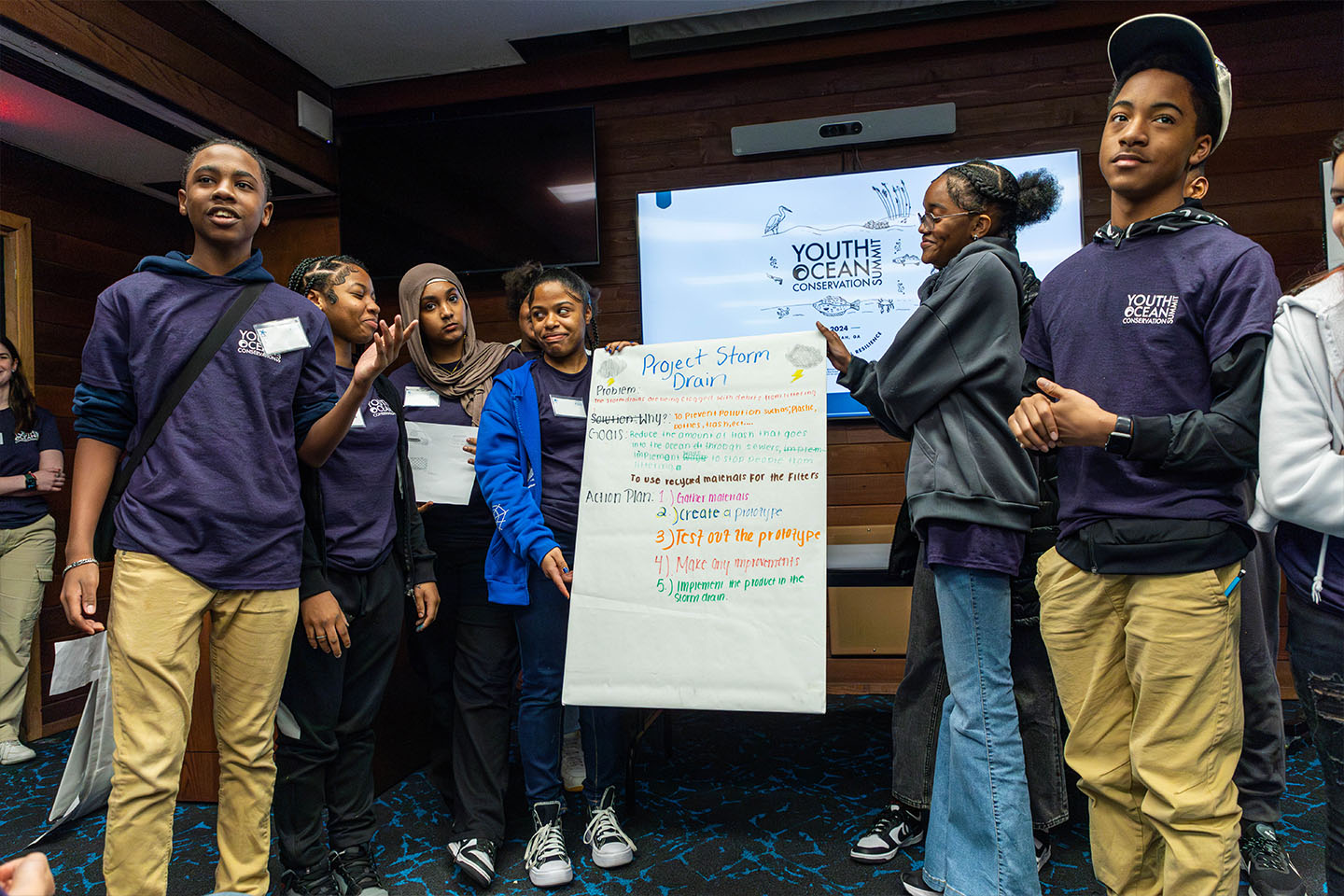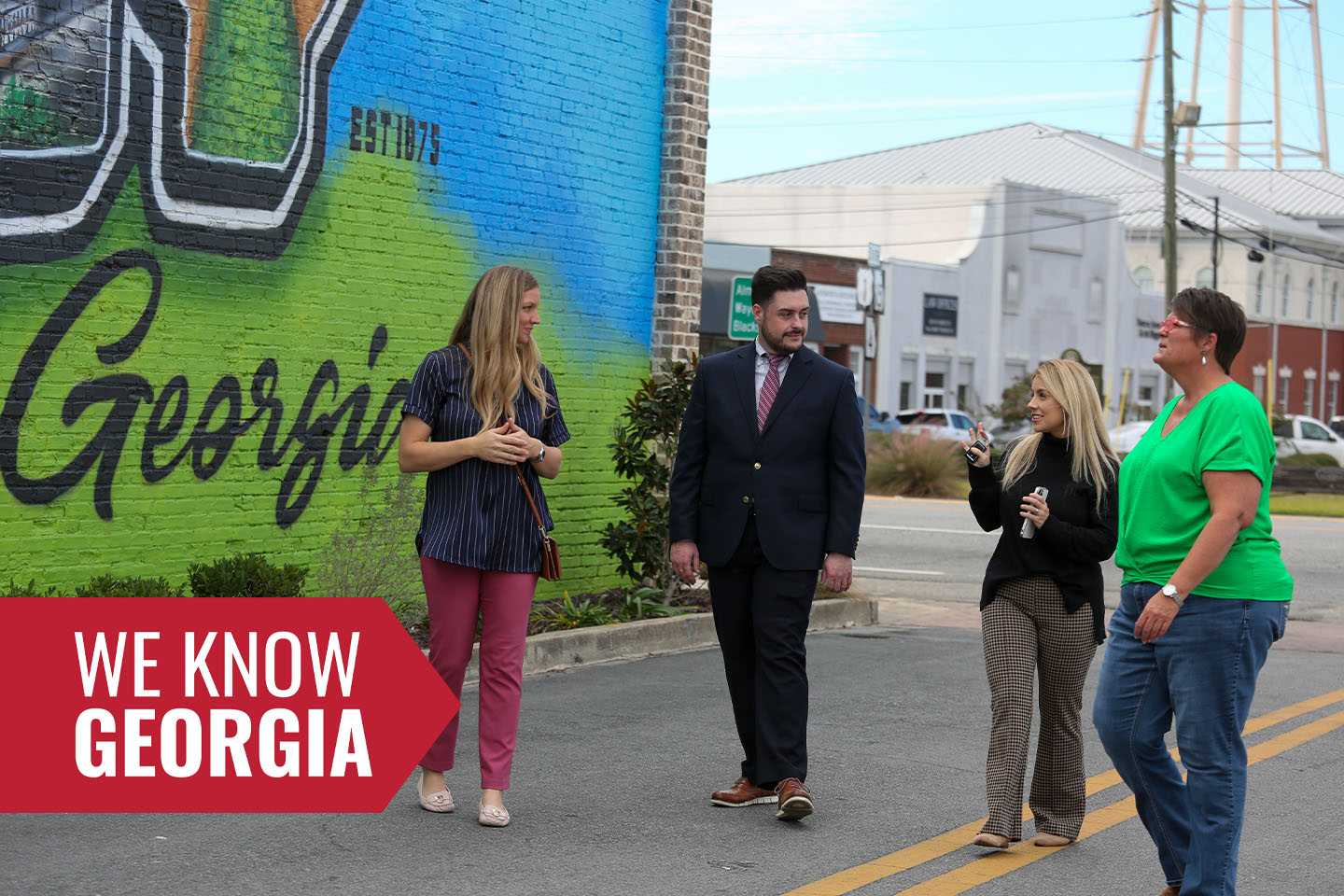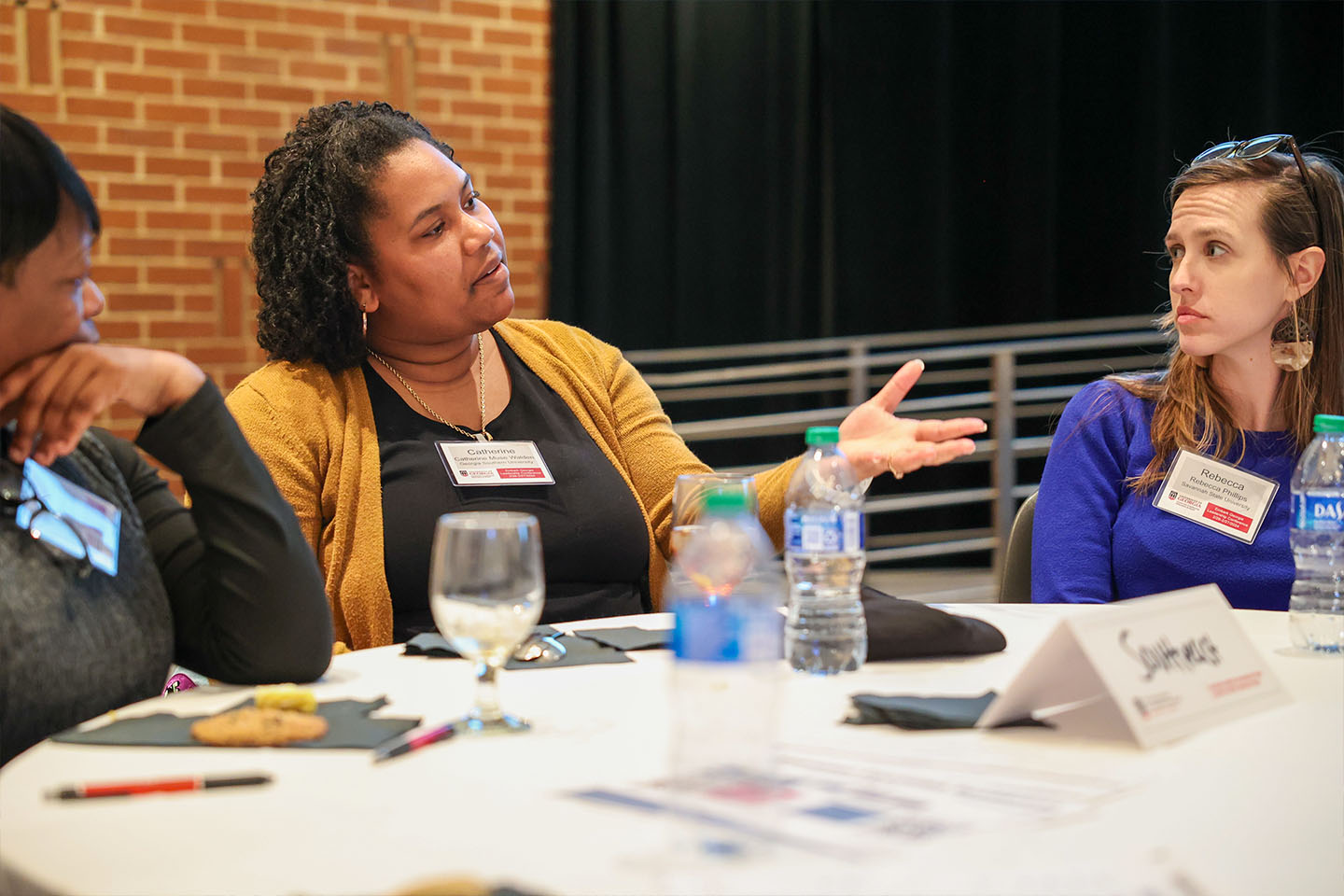Marissa Jones holds up a flash card featuring a U.S. president.
“Do you recognize him?”
“Do you know his name?” she asks when he doesn’t respond.
Leo Jackson, a senior citizen with dementia, sits on the couch in his Athens home and stares at the photo.
“No.”
She gently tells him that the man is President Obama.
Jones, a master’s student in the School of Social Work, then spreads out several cards she made with photos of singers and their bios. Jones and classmate Mellissa Pricher ask Jackson to select a favorite singer.
He chooses James Brown and Jones begins playing his songs from her iPhone, which triggers smiles and chuckles from Jackson.
“If you’re creative with activities, it can bring back memories,” Jones says.
Jones and Pricher are social work students in a new service-learning class that teaches students about the impacts of dementia on a family. Each week, the students visit with Jones, engaging him in activities, and giving his family—his caregivers—some much needed time for themselves.
Tiffany Washington, an assistant professor in the School of Social Work, created the course primarily for students majoring in social work or public health and have an interest in gerontology. She partnered with the Athens Community Council on Aging who provided the students’ training and identified the families who are enrolled in the program.
“It’s so meaningful to me for so many reasons,” Washington said. “We’re helping families. We are addressing the issue of caregiver burden, caregiver stress and recognize that caregivers give around-the-clock care. I always talk about empathy as the most important skill we can have as practitioners. This is very much an empathy-building course.”
The course is the first service-learning project for the Council that has enabled UGA students to work unsupervised at clients’ homes, said Eve Anthony, ACCA chief operating officer.
“We want to make sure that we are a good learning environment so that we’re creating a second generation of professionals who are interested in working with the aging population, or who at least understand issues related to the aging population,” Anthony said. “Service learning is creating that.”
Dementia is a syndrome in which there is a deterioration in memory, thinking behavior and the ability to perform everyday activities. Worldwide 47.5 million people suffer from dementia. The World Health Organization (WHO) estimates that the total number of people with dementia will rise to 75.6 million by 2030.
The students get ideas for activities from the people who are caring for the person with dementia. Suggestions have included listening to music or setting the table for dinner, things that can help the person relate to an earlier time in their life. Caregivers use the 90-minute respite provided by the students to take naps or do activities such as cleaning or gardening.
Jackson’s wife, Artelia, says listening to music and looking at pictures and words holds his attention and elicits responses.
“What they’re doing with him is a new activity,” she says. “When they are here with him, he smiles.”
Jackson connects a square puzzle piece showing a brown hat to the “hat” word piece.
“You got it. You did it,” Pricher says.
“Do you have any hats?” Jones says.
“I have a bunch of them,” Jackson says, laughing.
As the visit ends, Jackson takes a card of Ray Charles, folds it up neatly and puts it in his pocket. Pricher takes photos to document the moment, considered another break-through in their visits.
“Having this opportunity to learn and possibly explore and see if we want to work with this population, for me, it’s great,” Jones says. “Had I not taken this class I don’t know if I would have come into contact with them. I’m able to learn first hand.”




